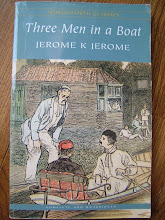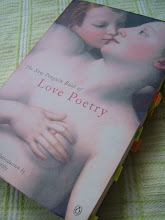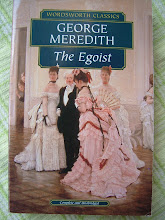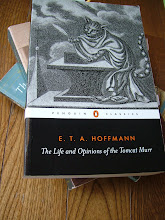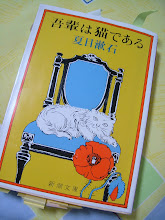 A Malay poem "Selepas Kapur Barus" ("After the Camphor") by Rosli K. Matari.
A Malay poem "Selepas Kapur Barus" ("After the Camphor") by Rosli K. Matari. マレーシア詩人ロスリ・K マタリ作マレー語の詩『樟脳の後』。
"Selepas Kapur Barus"/ oleh Rosli K. Matari
Setiap hari 毎日
Tanpa memilih waktu.時間を選ばずに
Kau tergesa-gesa datangあなたが慌てて来て
Mengetuk-ngetuk pintu. 私の門を叩いた
Kaubawa apa-apa sahaja あなたが何でも
Untukku. 持ってきてくれた
Sesekali kaubawa mawar 時々 あなたが
Entah dari taman mana. どこかの花園のバラを持ってきてくれた
Sesekali kaubawa kemboja 時々 あなたが
Entah dari makam mana. どこかの墓のプルメリアを持ってきてくれた
Apa-apa sahaja 何でも
Kauhulurkan padaku. あなたが手渡してくれた
Sesekali kaubawa akar 時々 あなたが根っこ、
Ranting dan benih.枝と種を持ってきてくれた
Sesekali kaubawa ilalang 時々 あなたが茅、
Pakis dan daun tua. シダと枯れた葉を持ってきてくれた
Aku selalu serba salah 私はそれらを受け取るかどうか
Untuk menerima. というジレンマに陥った
Kaubawa karang dan kerang あなたが珊瑚と貝、
Tiram dan mutiara. 牡蛎と真珠を持ってきてくれた
Kaubawa api dan cahaya あなたが火と光
Salji dan embun. 雪と露を持ってきてくれた
Apa-apa sahaja 何でも
Kauberikan kepadaku.あなたが私にくれた
Kaubawa serpihan tembikar あなたが磁器の破片
Dan logam berkarat. と錆びた金属を持ってきてくれた
Kaubawa serpihan nisanあなたが 墓碑のかけら
Dan sisa selangka. や残留する鎖骨を持ってきてくれた
Aku selalu gelisah gelabah それらを拒絶するのに
Untuk menolak. 私はいつも不安を感じていた
Cengkerik dan lelabah コオロギも蜘蛛も
Juga kaubawa. あなたが持ってきてくれた
Nanah dan darah 膿も血も
Juga kaubawa. あなたが持ってきてくれた
Segala-galanya すべてが
Berlonggok begitu sahaja.そのまま山積みになった
Pasir dan kelikir 砂も石も
Juga kaubawa. あなたが持ってきてくれた
Debu dan tanah 塵も土も
Juga kaubawa. あなたが持ってきてくれた
Setiap kali kubuang jauh 毎回私はそれらを遠くへ捨て
Esok kaukutip kembali. 翌日あなたが再び拾ってくれた
Apa-apa sahaja 何でも
Kautinggalkan kepadaku.あなたが残してくれるた
Aku tidak ingin menunggumu 私はあなたを待ってはいない
Tetapi pintu itu kauketuk lagi. しかしあなたがその門を度々叩いた
Berulang kali 何度も繰り返し
Berulang hari. 何日も繰り返していた
Sekali ある日
Kaubawakan pula kapur barus.あなたが樟脳を持ってきてくれた
Segala-galanya すべてが
Berlonggok di hadapanku.私の前で 山積みになった
Tetapi selepas kapur barus itu しかし 樟脳の後は
Mengapa kau tidak datang-datang lagi? なぜかあなたが もう来てくれない?
Japanese translation/日本語訳: Charlottell
+++++++++++++++++++++++++++++++++++++++++++++
"After the Camphor" 《樟脑之后》Everyday 每一天
without considering the time不定时地
You came to me in rush你匆匆忙忙到来
Knocking at my door轻敲我的门
You brought everything 你为我带来
To me 许多东西
Sometimes you brought me roses有时候你为我递上
From an unknown garden从不知名的花园中摘下的玫瑰
Sometimes you brought me plumeria 有时候你为我带来
From an unknown graveyard从不知名的墓地里折下的缅梔花
Whatever it was任何东西
You held it out to me你都为我献上
Sometimes you brought me roots有时候你为我带来树根
Branches and seeds枝丫和种子
Sometimes you brought me wild grasses有时候你为我带来茅草
Ferns and old leaves羊齿植物和凋零的叶片
I always faced the dilemma of为了是否该收下这些东西
accepting them or not我常常陷入两难
You brought coral and shells你带来珊瑚和贝壳
Osyter and pearl 牡蛎与珍珠
You brought fire and light你带来火与光
Snow and dew 雪和露
Whatever it was无论是什么
You held it out to me你都为我献上
You brought pieces of porcelain你带来瓷器的碎片
And rusted metal和生锈的金属
You brought pieces of tombstone 你带来墓碑的破片
And leftover of collarbone和残留的锁骨
I was always nervous为了推辞这些东西
To reject them我常常觉得焦虑不安
You also brought cricket 你也带来了蟋蟀
And spider和蜘蛛
As well as 还有
Pus and blood脓与血
Everything that you brought me你为我带来的所有东西
Piled up just like that就这么样的堆积在那里
You also brought me你也为我带来了
Sand and gravels沙和石
As well as 还有
Dust and earth尘与土
Everyday I threw them faraway每一次我将它们远远地扔掉
But you picked them up again for me隔天你却把它们都捡回来
You left for me 你为我留下
Everything所有的东西
I wasn’t expecting you我并没有在期盼着你的到来
But then again you knocked at my door你却不停地来敲我的门
Repeatedly重复着
Day after day一天又一天
Once 有一次
You brought me camphor你为我带来了樟脑
Everything所有的东西
Heaped up in front of me堆积在我面前
But after bringing the camphor 可是 樟脑之后
Why didn’t you come again?为何你不再来了呢?
English & Chinese translation/英語・中国語訳: Charlottell
















